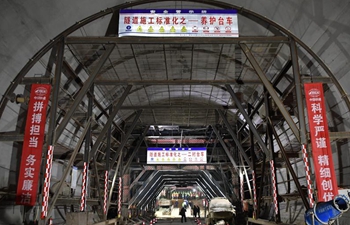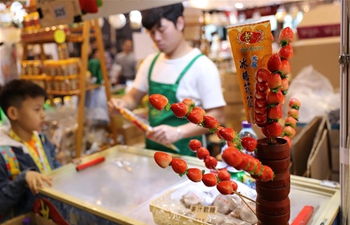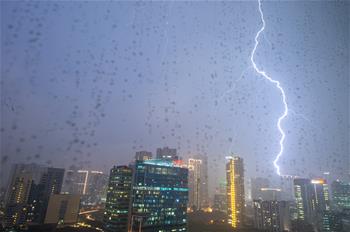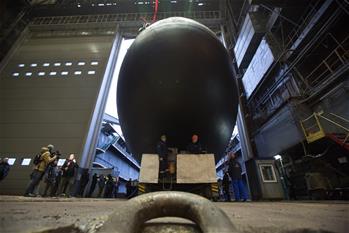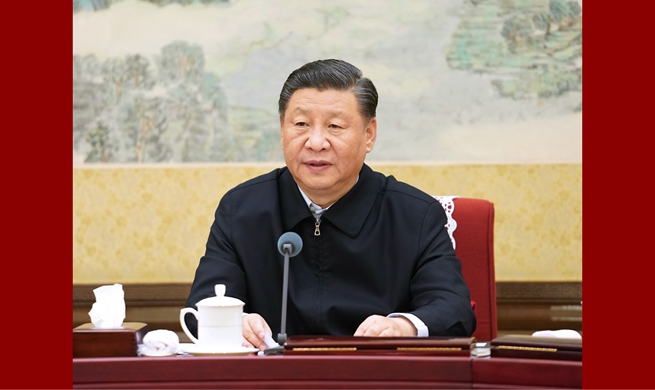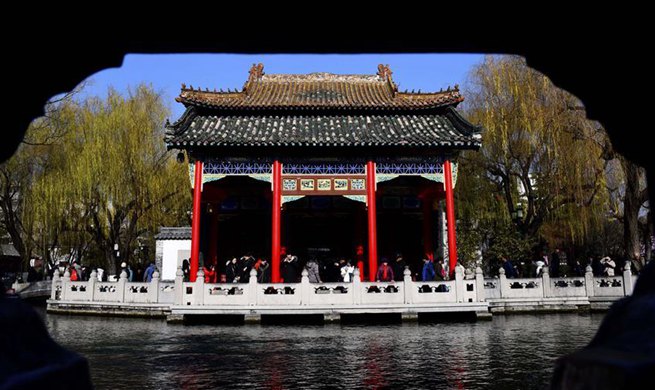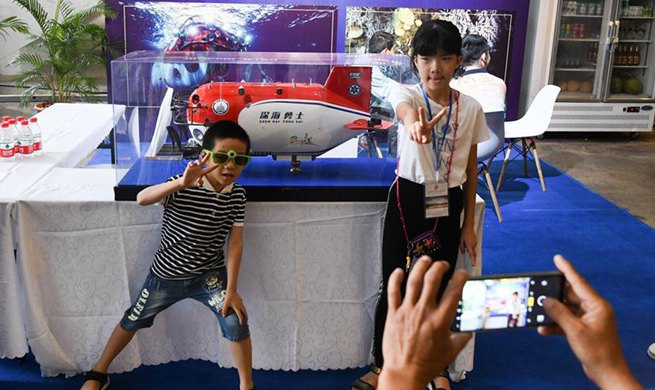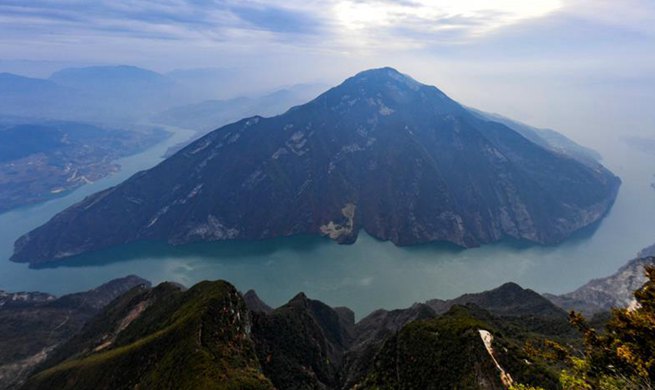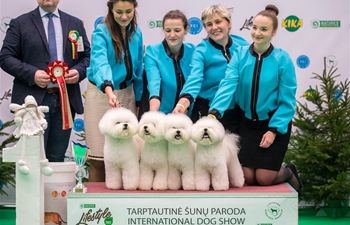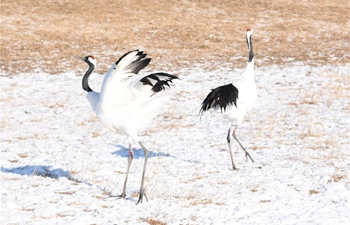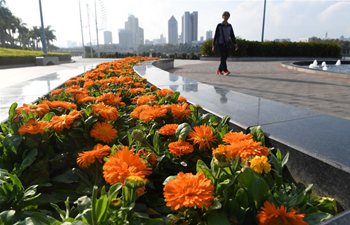by Ayten Laamar
TUNIS, Dec. 28 (Xinhua) -- A total of 19 Tunisian doctors in different specialties listened to a lecture about Chinese moxibustion technique at the Monji Slim Hospital in Tunis.
The lecture was organized on Friday by Xu Jie, head of the acupuncture unit of the Chinese medical mission in Tunisia. Moxibustion is a medicine technique that involves the burning of mugwort to promote healing with acupuncture.
"I have been working in the acupuncture center in Monji Slim Hospital for more than five years," Xu said, adding that he has been training Tunisian doctors on the practice of acupuncture.
"In this center there are five Chinese acupuncturists who receive more than 40 patients daily," Xu said.
Acupuncture is a complementary medical practice that entails stimulating certain points on the body, usually with a needle penetrating the skin, to alleviate pain or to help treat various health problems.
"Every two years, around 15 selected Tunisian doctors would hace the chance to take acupuncture course at Monji Slim Hospital," said Ahmed Laatar, head of Rheumatology department and Acupuncture Center at Monji Slim Hospital.
"These doctors follow a theoretical course of two years including 80 hours of training at the Acupuncture Center," Laatar added.
The Tunisian professor explained that the course has four stages, namely the basic theory of traditional Chinese medicine, transfusions of meridians, acupuncture manipulation skills, and clinical acupuncture treatment.
"Chinese acupuncture is a natural therapy that treats pain without side effects," said Abd Raouf Sadoc, a general practitioner from Tataouine province in southeastern Tunisia.
Sadoc, who is taking the course, said he is not only looking for a degree in acupuncture, but also discovering Chinese culture, especially the philosophy of traditional Chinese medicine.
Manel ben Hmidene, a neurologist, stressed that acupuncture is a therapeutic alternative to treating certain painful diseases, without undesirable effects on the patients.
"The problem in Tunisia is that this technique is not well-known, and there are not many Tunisian doctors who practice it," Hmidene added.
Since 1973, China has been sending medical teams to Tunisia, including doctors in obstetrics, gynecology, pediatrics, orthopedics, ophthalmology and acupuncture.
The Chinese medical teams have provided more than 5 million outpatient services to Tunisian people and performed more than 320,000 operations.
